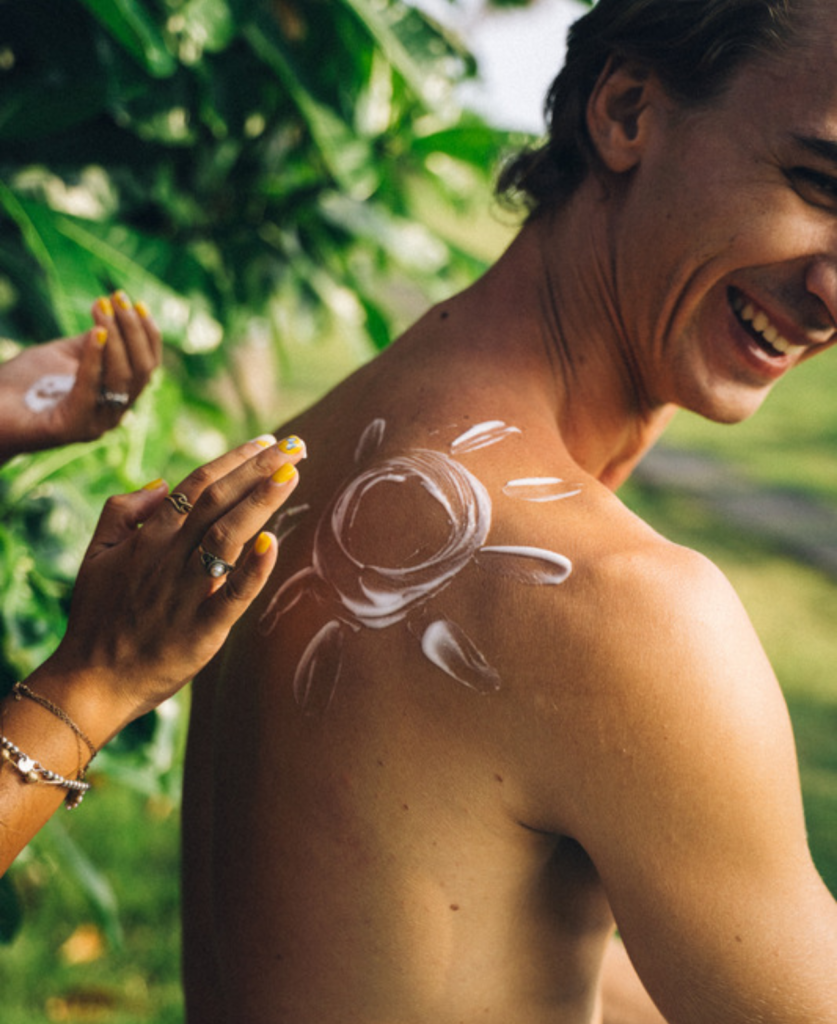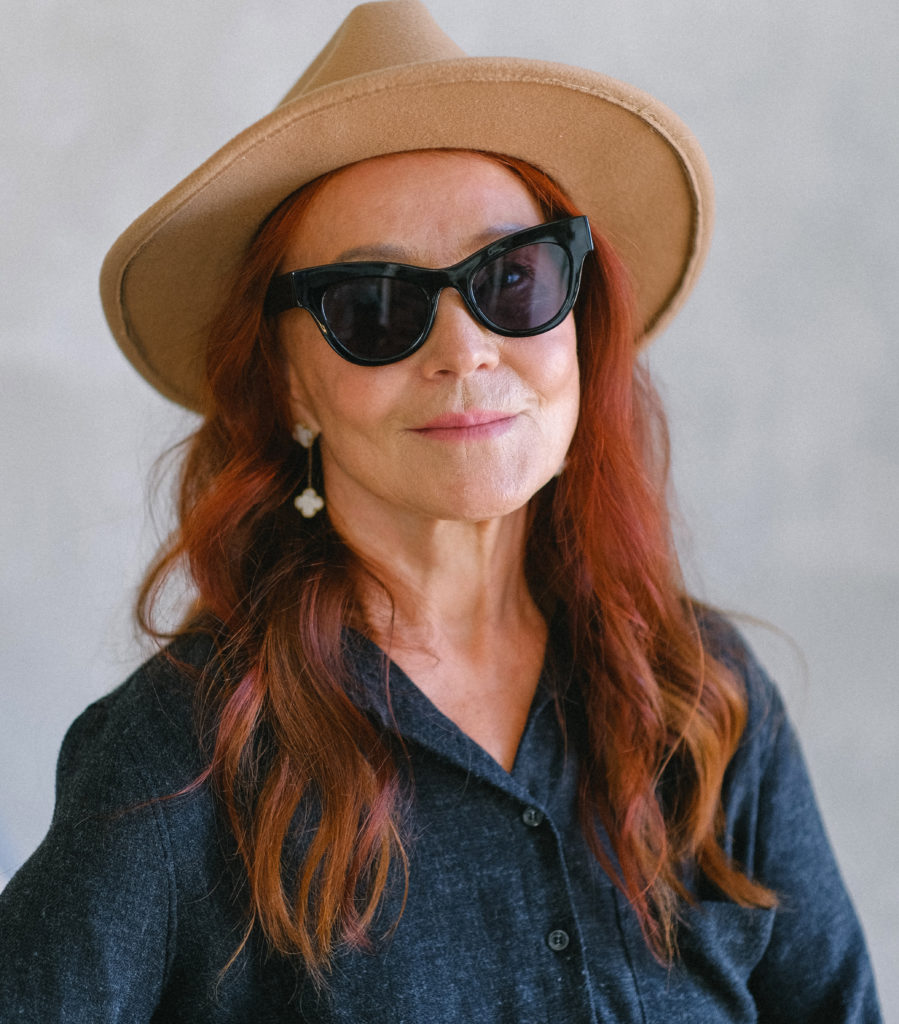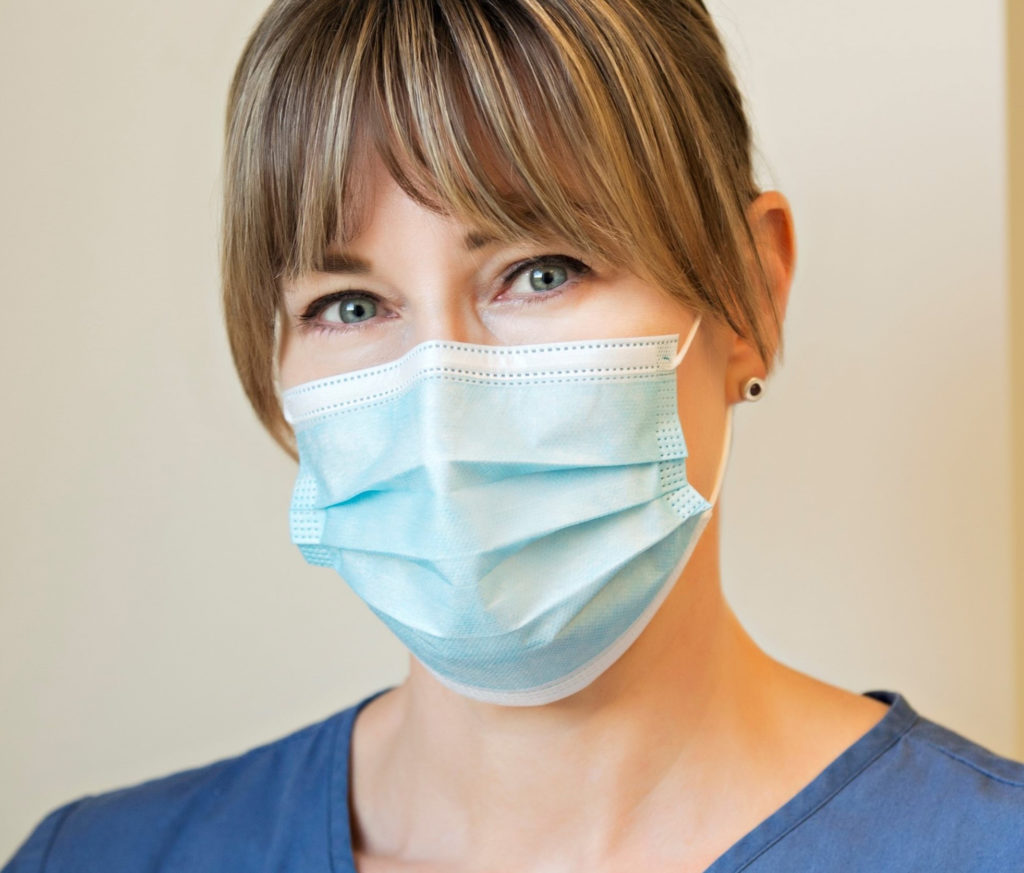
Do people with darker skin need to use sunscreen? Which is better: sunscreen lotion or spray? Dr. Jennifer Beecker, a dermatologist at The Ottawa Hospital answers these questions and more.
When should I apply sunscreen?
The main thing is to apply sunscreen before you go out. It’s not that it takes time to work; it’s that once you’re outside, you start to get UV radiation, and some skin types can burn in less than five minutes.
Ideally, apply sunscreen every morning to any sun-exposed parts of your body. If you do it first thing in the morning, you don’t have to think about doing it later. You can put your sunscreen next to your toothbrush to help remind you.
And while you put on your sunscreen, remember to check your skin for signs of skin cancer.
How much sunscreen should I put on?

The Canadian phrase is “a generous amount.” We used to say, ‘use a shot-glass-sized amount on your body,’ but it depends on how much of your skin will be exposed to the sun, and it depends how big you are. A little kid will need less sunscreen than a very tall adult. So by applying a “generous amount,” we mean having a really good coating on your skin, not just a thin layer that you spread around.
Roughly speaking, for an average sized adult, it would be one to two teaspoons for the head and neck, and two to three tablespoons for the body.
If you’re not sure you’ve put on enough sunscreen, you can apply a second layer ten minutes after the first to make sure you haven’t missed any spots.
Does expired sunscreen still work?
Generally I recommend throwing out expired sunscreen, but if it was left in a place away from heat and light, you could probably use it for a couple of months after the expiry date. What expires is the preservatives, so the sunscreen can get a bit funky. If it’s a year past the expiry date, or if it was left in the car, I would pitch it. If the texture has changed at all, even if it isn’t expired, I would also pitch it.
Do people with darker skin need to use sunscreen?

We know that people with darker skin can still get sunburns. They might describe it as painful skin rather than pink skin.
The topic of skin cancer in people with darker skin is a bit controversial because there is less data on cancer and people of colour, and that points to the disparity in health-care data. The evidence is very weak on the link between sunscreen preventing cancer in anyone with darker skin.
We know that skin cancers are less common in people of colour and that they’re more likely to get skin cancer on the palms of their hands and souls of their feet. However, there are lots of other reasons for people with darker skin to wear sunscreen, like helping to prevent signs of aging or dark spots.
Sun lotion or sun spray: which is better?
Lotion. I know sunscreen spray is convenient for parents and kids, but it’s just not as good as lotion. First of all, the spray can get caught in the wind and not even end up on your skin. It’s clear, so when you rub it in, you might miss spots. And lastly, we don’t know the effects of inhaling a sunscreen spray.
If you do use sunscreen spray, never ever spray it directly on to your face because you’re not supposed to get the product in your eyes or nose, or inhale it.
Sunscreen lotions usually start out white, so you can see where you are applying it and make sure you don’t miss any spots. Apply sunscreen lotion well before you go outside and use sunscreen spray as a good second layer of sun protection or as a touch up if you’re at the beach and your kids are running around. Just make sure you’re not spraying it into the wind or breathing it in.
Is tinted sunscreen better than regular sunscreen?

Absolutely. In fact, sometimes tinted sunscreen has pigments, or actual sunscreen filters, that can block farther into the UVA range and sometimes, for example if it has iron oxide, it can block visible light. Visible light has been shown not necessarily to cause skin cancer, but rather to cause a lot of skin disorders and pigmentation on the face like the mask of pregnancy, (melasma).
Should I use different sunscreen on my face and my body?
Not necessarily. Most of the time, you can use the same sunscreen on your face and body. If you have sensitive skin, you may want to choose a sunscreen made for the face.
For people who sweat a lot and tend to get sunscreen in their eyes, I recommend a more water-resistant or sweat-resistant sunscreen on the face.
For people who are prone to acne, there are several sunscreens promoted as oil-free. There are also sunscreen gels. You may want a physical blocker that contains zinc oxide and titanium dioxide because they tend to be a bit of a drier touch compared to sunscreens that use a chemical blocker, so read the bottle and opt for a sunscreen gel or lotion.
What is the best sunscreen?
The best sunscreen is the sunscreen you’ll wear every day. Choose the one that feels good on your skin and that you like. As long as you wear it, that’s the best one.
How else can I protect myself from the sun?
Using sunscreen correctly every day is one part of a sun protection strategy. Here are some other sun protection tips:
- Cover up: wear light, long sleeve shirts and pants, as well as sunglasses and a hat to protect a larger area of your body from the sun
- Choose your time wisely: avoid being outside during peak sun hours.
- Make sunscreen part of your morning routine: put your bottle of sunscreen next to your toothbrush to remind you to put it on first thing in the morning. Data show that you don’t need to reapply sunscreen every couple of hours unless you are sweating a lot or get wet, so put it on well at the beginning of the day to protect your skin all day long.
- Don’t chase perfection: if you forget to apply sunscreen before you go outside, put it on as soon as you remember. It’s better to have a bit of sunscreen on than none at all.
What’s the best way to treat a sunburn?

Did you know that just one sunburn can increase your risk of getting skin cancer for life?
The best way to treat a sunburn is never to get one. Prevention, prevention, prevention. A sunburn is hard on your body. It not only hurts your skin, but it can also cause blood inflammation inside your body, and this stress can cause a fever. So avoiding getting a sunburn is best.
A cool compress can help treat a sunburn. I’m not a big fan of aloe because I see a lot of allergies to aloe and other topical creams. You can use a plain moisturizer and some Tylenol to help relieve the symptoms of a sunburn.
Dr. Jennifer Beecker is a dermatologist, clinical researcher and Director of Research for the Division of Dermatology at The Ottawa Hospital. She is also President-Elect of the Canadian Dermatology Association, and has been featured in The Globe & Mail, The Toronto Star, Today’s Parent, Chatelaine, and others.

Support patient care and research at
The Ottawa Hospital
You might also like…
Aging well: Guidance for older adults
In this special video series for both older adults and their loved ones, geriatric care specialists from The Ottawa Hospital offer guidance on navigating common health-care challenges that may arise with aging.
How to stay safe around water this summer
Drowning can happen to anyone — even strong swimmers. Emergency physician Dr. Christian Vaillancourt debunks common myths about drowning, explains how to act quickly to save a life, and shares what you can do to keep yourself and your loved ones safe around water.
What’s the difference between an optician, optometrist, orthoptist and ophthalmologist?
“Do I need to see an optician, optometrist, orthoptist or ophthalmologist?” We asked Ophthalmologist Dr. Annick Fournier to break down each role so you will know who to consult for your specific eye care needs.
Understanding rabies: Risks, vaccination and what to do after a bite
Although rare in Canada, rabies is almost always fatal once symptoms appear. Infectious diseases expert Dr. Michaeline McGuinty shares how rabies is spread, when to get vaccinated and what to do after a bite.
“My story doesn’t have to be your story”: New screening test better at preventing cervical cancer
“I went from being a 32-year-old new mom to a cancer patient with an incurable diagnosis.” Alicia’s journey underscores the critical role of HPV testing in preventing cervical cancer. Discover how the new HPV test can save lives and find out how to book your cervical screening appointment with our “Superscreener.”
Sign language interpretation services at The Ottawa Hospital: 5 FAQs
Do you require a sign language interpreter when you come to The Ottawa Hospital? For patients who are Deaf or hard of hearing, we provide both American Sign Language (ASL) and Langue des Signes Québécoise (LSQ) interpretation services at no cost. Before your next appointment with us, find out everything you need to know.


 To reset, hold the Ctrl key, then press 0.
To reset, hold the Ctrl key, then press 0.





